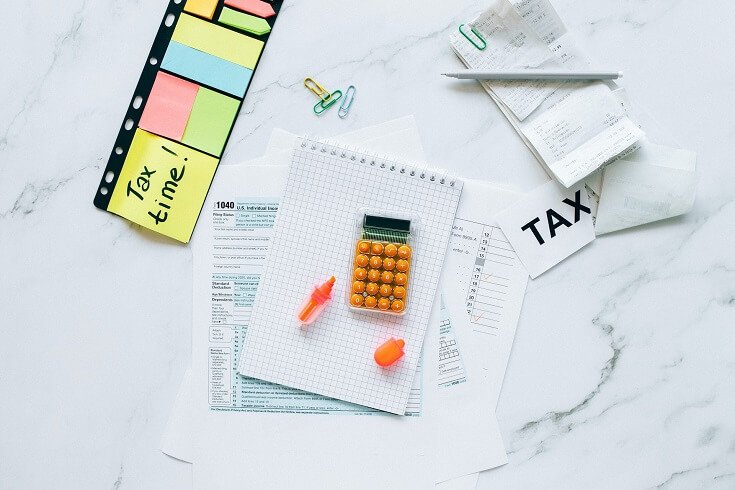Indonesia’s Value-Added Tax (Pajak Pertambahan Nilai – PPN) is a significant aspect of its taxation system, impacting both local and foreign businesses. The latest regulatory updates, including the introduction of the 12% VAT rate in 2025, are important for businesses to understand in order to comply with the evolving tax landscape.
Key Takeaways
- The standard VAT rate in Indonesia remains at 11% for most goods and services as of January 1, 2025.
- The VAT rate increases to 12% only for luxury goods and services, such as high-end vehicles, luxury residential properties, and certain imported items.
- Exports remain subject to a 0% VAT rate.
- Imported goods that are not classified as luxury items incur 12% VAT starting in 2025.
- The scope of 0% VAT services includes IT, R&D services, and others, as per previous regulations.
- Accrual basis for VAT collection; monthly reporting is required.
- Non-taxable transfers include consignments and capital contributions.
- Businesses need to prepare for the new VAT rates on luxury goods and imported goods, while other sectors are unaffected by the VAT increase.
Also read: What is NPWP in Indonesia: A Comprehensive Guide
What is PPN in Indonesia?


Pajak Pertambahan Nilai (PPN), or Value-Added Tax (VAT), is a consumption tax applied on the sale of goods and services in Indonesia. This tax is a crucial revenue source for the Indonesian government and impacts both domestic and international businesses operating within the country.
The Value Added Tax is levied and paid directly by the Taxable Entrepreneur (PKP), but the cost is passed on to the end consumer. Every PKP must charge, deposit, and report the VAT due.
New VAT Regulation for 2025
As of January 1, 2025, Indonesia’s VAT rate will increase to 12% from the previous 11%. This change follows the Tax Regulation Harmonization Law (UU HPP), designed to strengthen the fiscal position of the state while maintaining fairness in taxation.
The 12% VAT rate will apply to most goods and services, but luxury items will see significant changes. These include high-end goods such as motor vehicles, luxury residences, and yachts, which will now be taxed under a modified scheme for luxury goods (PPnBM). This move is part of a broader strategy to increase government revenue without heavily burdening the broader population.
Legal Framework Under New Regulation (PMK 131/2024)
The Minister of Finance Regulation (PMK) No. 131 of 2024, which took effect on January 1, 2025, outlines the specifics of VAT application on goods and services. According to the regulation:
- Luxury Goods Tax (PPnBM): Items like luxury vehicles, high-end homes (priced over IDR 30 billion), private jets, and yachts are subject to the new 12% VAT rate.
- Goods and Services Not Subject to VAT: Basic necessities, education services, public transportation, and essential goods will continue to enjoy exemptions or the 0% VAT rate.
- Calculation of VAT: VAT on taxable goods will be calculated based on the selling price or import value, as outlined in the PMK. For luxury goods, a revised basis for VAT calculation applies, incorporating a specific value determination mechanism that includes 11/12 of the selling price or import value before applying the 12% rate.
Also read: What is LKPM Reporting in Indonesia: Essential Guide
Key Implications for Businesses


The 12% VAT increase has several important implications for businesses:
- Increased Costs for Luxury Goods: Businesses dealing with luxury items will experience higher costs due to the new VAT rate. This could lead to higher prices for end consumers, particularly in sectors such as real estate, automotive, and luxury goods retail.
- Administrative Adjustments: Businesses must update accounting systems, invoicing practices, and VAT reporting to comply with the 12% VAT rate. This requires effective communication and training within the organization to ensure accurate implementation.
- Impact on Consumer Behavior: The increase in VAT on luxury items could lead to a decline in demand, as higher prices may discourage some consumers. However, businesses can explore efficiency measures to offset cost increases.
Also read: PMA (Foreign Company) Taxation in Indonesia: Complete Guide
Strategic Preparation for VAT 12% Implementation
Businesses can mitigate the effects of the VAT increase by adopting these strategies:
- Financial Forecasting and Budgeting: Conduct financial modeling to assess the impact of the VAT increase on costs, margins, and pricing strategies. Adjust budgets and forecasts to account for the new tax rate.
- Reevaluate Pricing Strategies: Review product pricing structures to determine if the VAT increase can be absorbed or must be passed on to consumers. Transparency in communication will be vital to maintaining customer trust.
- Operational Efficiency: Streamline operations to reduce costs and maintain competitiveness. Consider renegotiating supplier contracts, improving supply chain logistics, or investing in automation to offset some of the VAT impact.
Impact on Specific Goods and Services
The 12% VAT rate will apply only to luxury items. Examples include:
- Motor vehicles and aircraft (excluding those used for state purposes).
- Luxury homes and apartments valued at IDR 30 billion or more.
- Luxury yachts and exclusive ships.
These goods, which already face luxury sales tax (PPnBM), will be taxed under both the PPnBM and VAT systems, increasing the total tax burden on high-end consumers.
Also read: Indonesia’s Sales Tax: A Guide for Businesses and Investors
VAT for Foreign Companies
Foreign companies providing goods or services in Indonesia are subject to the same VAT regulations as domestic companies. They must apply the new 12% VAT rate on their sales to Indonesian customers if their goods or services fall under taxable categories. Exports to Indonesia remain subject to a 0% VAT rate, while imports will be taxed at 12%.
Monthly VAT Returns and Reporting
VAT returns are still required on an accrual basis, meaning VAT is due at the time of supply, not when payment is received. The monthly VAT return must be filed by the end of the month following the taxable period.
Also read: What is SPT (Tax Return) in Indonesia?
VAT Calculation Example
For a taxable good with a selling price of IDR 50 million, the VAT payable under the new 12% system is calculated as follows:
- Selling Price: IDR 50 million.
- VAT (12%): 12% x IDR 50 million = IDR 6 million.
For luxury goods under the special VAT calculation rules, the value base for VAT may be adjusted based on 11/12 of the import or sale price, with VAT calculated accordingly.
Also read; Tax Incentives in Indonesia: Key Benefits and Opportunities
VAT Registration in Indonesia
Businesses must register for VAT when their annual revenue reaches IDR 4.8 billion. Meanwhile, businesses with less than IDR 4.8 billion in revenue can choose to voluntarily register for VAT.
The registration of VAT taxpayer in Indonesia can be time consuming. For make it simpler and hasle-free, you can rely on InvestinAsia’s Indonesia tax consultant and compliance services. Our experienced team of professionals is ready to assist you in every tax matter, such as:
- Accounting and tax reporting services in Indonesia
- Indonesia Payroll Service
- Indonesia LKPM Reporting Service
- Indonesia VAT Taxpayers Registration
Contact us for a FREE tax consultation and get special offers!
FAQs about PPN in Indonesia
What is the VAT rate in Indonesia?
The standard VAT rate is 12% starting from January 1, 2025.
What are luxury items under the new VAT regulations?
Luxury goods such as high-end vehicles, luxury homes, private aircraft, yachts, and other high-value consumer goods are subject to the new 12% VAT.
Is there any exemption from VAT?
Certain goods and services, such as basic necessities (e.g., rice, eggs, fresh milk), education, and public transportation, are exempt from VAT.
How will the VAT change impact foreign businesses?
Foreign businesses selling goods or services in Indonesia must apply the 12% VAT on taxable sales to Indonesian customers. Exports remain at a 0% rate.
Can VAT be refunded in Indonesia?
Yes, businesses can claim VAT refunds under specific conditions, particularly if they have paid more input VAT than the output VAT collected.
The new VAT structure is designed to promote fairness while ensuring adequate government revenue. By staying informed and prepared, businesses can successfully navigate the transition to the 12% VAT rate in 2025.
sources:



